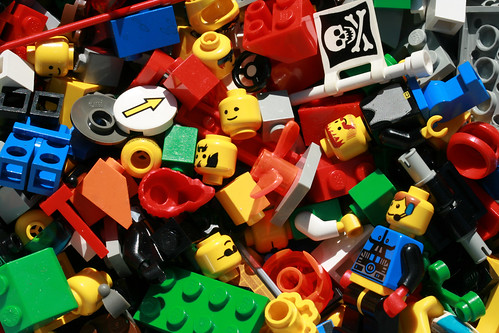 It was around twenty years ago that the Soviet system collapsed. I remember the Western journalists poking around Russia's towns and reporting on what they found. They found factories producing substandard goods nobody wanted, while basic needs went unmet. The journalists found a broken system. They wondered why it hadn't collapsed sooner.
It was around twenty years ago that the Soviet system collapsed. I remember the Western journalists poking around Russia's towns and reporting on what they found. They found factories producing substandard goods nobody wanted, while basic needs went unmet. The journalists found a broken system. They wondered why it hadn't collapsed sooner.
The flaws in the Soviet system seemed obvious to the Westerners, but to those who had been working at its centre they were less clear. The factories were producing according to plans laid down from on high. The plans had a logic to them. If everyone did their bit then the whole country ought to prosper. Sure there were problems at a local level, but it didn't do to ask questions. It wasn't for any individual factory boss to second guess the system when she or he could only see a small part of it.
Today, our system is broken. Most of us, however, are either blind to it or in denial.
The political system is broken. Billions of people looked to their leaders to shake on a deal in Copenhagen, yet all the politicians could deliver was a weak, non-binding declaration made by between a handful of countries. Some say Barack Obama wanted to do more for climate change. If so, he wasn't blocked by the American people, but by the American Senate. Opinion polls tell us the American people, the British people and the Afghan people all want NATO to withdraw its troops from Afghanistan. Instead, the war is scaled up.
The economic system is broken. All around us there are jobs that need doing. Clearing the floating plastic debris from the North Pacific Gyre – that's a huge job. Where I live, in Mexico, practically every house ought to have a solar water heater – building them and installing them could keep a lot of people busy. There are trees that need planting and wind turbines that need erecting and solar panels that need dusting down. Old people need visiting, the sick need nursing and the hungry need feeding. And in Haiti, today, the needs are huge.
A working economic system would match resources to needs. Our system leaves important jobs undone while millions remain out of work.
Those in power tell us we cannot afford to do these things. They say the United States cannot afford a high speed rail network or a world-class public healthcare system; they say the United Kingdom cannot afford to replace more than a fraction of its inefficient water heaters; they say Germany cannot afford to rein in its car industry, which exports gas guzzlers to every corner of the globe. They are wrong.
They say the US state of California is bankrupt. I've never been to California, but I've seen one or two pictures. There's some poverty there, of course, but there are also huge mansions, glass skyscrapers and oversized cars. California is not bankrupt. If California can afford all these things but must close state parks and eliminate welfare and health programmes, then California simply has topsy-turvy priorities. They are the priorities of the political-economic system, all at odds with society and the environment.
We can afford to move towards a fully employed, environmentally sustainable, caring society. Indeed, we cannot afford not to. What we cannot afford is war, McDonald's, SUVs, multiple foreign holidays, plasma televisions, Las Vegas, and institutionalised greed.
We cannot afford our broken system. The question is, do we wait for the system to collapse or do we start building a new one now.